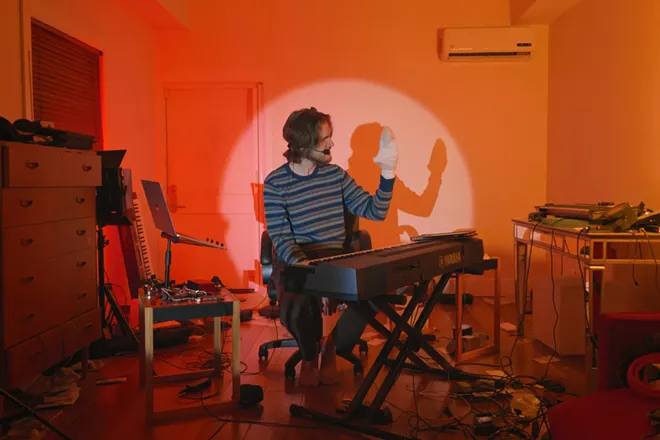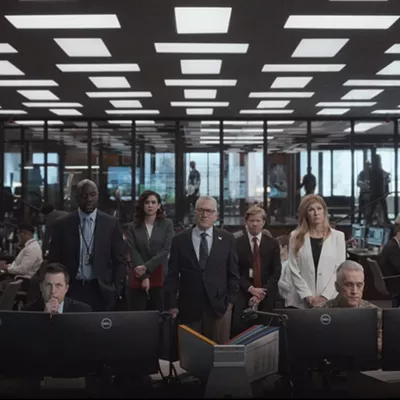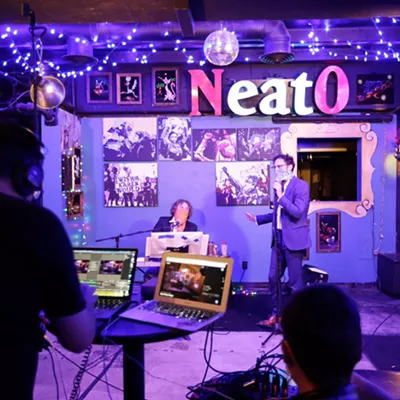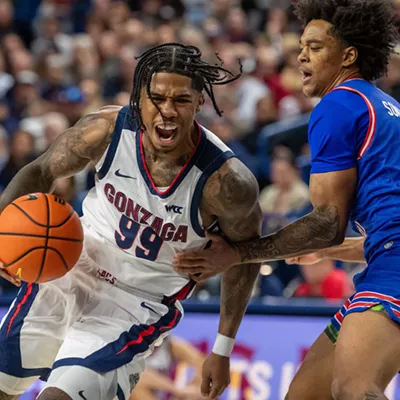I do not want any pandemic art.
While we're not far from an onslaught of movies, books and songs about COVID times, I do not need that in my cultural diet. I'm not shutting myself off to the possibility of any of it being good, I just sincerely doubt there's going to be many creative works that will provide insight to these dark days. Like most art responding to 9/11, all these creative trauma vectors can do is bring me back to miserable mindsets. I know the COVID art beats: It was a bummer time, we weren't compassionate and empathetic enough, but some of us got through. We're certainly not out of the pandemic, but the mere thought of consuming "entertainment" about it sounds unfathomably draining.
But perhaps more to the point, Bo Burnham: Inside already exists, and it's impossible to imagine something will distill the feelings of these times any better.
The musical and comedic polymath's Netflix special/movie/album presents a singular vision of struggling with mental health during the COVID era. We were all locked inside our brains in 2020. Burnham materialized that reality via the confined space of his performance shack.
Burnham's had a gift for crafting humorous pop songs since he was an awkward YouTube teen, and Inside finds him at the peak of his songwriting powers. Not only does the subcurrent of mental wear run underneath the songs, they also manage to hit so many modern zeitgeist spots. "Welcome to the Internet" cuts at the brain rot of our ever-connected digital age with evil carnival barker glee. "How the World Works" mixes sock puppet existentialism and societal critique like Sesame Street doing A People's History of the United States. "Bezos I" and "Bezos II" send up the billionaire class with a brevity and style unintentionally perfect for the TikTok generation.
Above the rest, "That Funny Feeling" is the hardest tune to shake. It's the heart of Inside, an acoustic guitar campfire jam about our societal vapidity and the impending end of everything. The expertise comes in the way Burnham lyrically lays out a tidal wave of modern bullshit where the only proper response seems to be total nihilism. No lyrical passage in 2021 can top: "The live-action Lion King, the Pepsi Halftime Show / 20,000 years of this, seven more to go / Carpool Karaoke, Steve Aoki, Logan Paul / A gift shop at the gun range, a mass shooting at the mall." But the song still carries the whiff of a human yearning — a want to feel, a desire to not fully numb oneself. It's metaphorically digging into the sand to face the coming wall of water's annihilation instead of tuning your back to be blindly washed away.
Just as Burnham's musical skills have grown, so has his awareness that many of his old gay jokes or intentionally crass female objectification wouldn't fly in 2021. With the '80s pop flair of Flashdance's "Maniac," "Problematic" essentially serves as a catchy and somewhat necessary "Why haven't y'all canceled me yet?" self-takedown for the offensive material in his past.
"Self-awareness does not absolve anybody of anything," Burnham says during Inside. But that's not entirely true. The problem with most of the stand-up comedian class that bemoans cancel culture is they completely refuse to be accountable on any level. And it sadly doesn't seem to matter — Louis C.K. received a 2022 Grammy nomination for Best Comedy Album. Burnham did not.
Most of the criticisms levied against Inside come from people who find its perspective too privileged and pretentious, (despite those issues being acknowledged throughout — see: “Comedy”) or think people who attach to it are low-level thinkers who should just seek actual mental health counseling. But it’s frankly ridiculous to criticize a hyper-specific viewpoint for not being completely universal or being upset that people find art that helps them feel seen in their darkest moments. To quote “That Funny Feeling,” these critiques mostly seem like “the backlash to the backlash to the thing that’s just begun.” At no point does Burnham indicate this is what everyone was going through in 2020, but for a ton of creative-learning minds it’s exactly what we were feeling.
If forced to categorize Inside, I'd lean toward labeling it a film. While it can work as an album because the music is that good, that's not its idealized form. Many songs require visuals to maximize the humorous moments ("White Women's Instagram," etc.) or the even dramatic ones (the wallop of seeing a fresh-faced Burnham starting to write the finale, "Goodbye," and overlaying it with his worn and grizzled visage actually performing it nearly a year later). Plus, the interstitial bits — shots of him setting up lights and cameras which capture the routine monotony of depression or nonmusical segments of meta self-criticism — are essential parts of Inside's fabric absent from the album. (Spoiler: That's why it won't be on my "Best Albums of 2021" list.)
It's certainly not a stand-up special: There is no crowd, and it's not a singular performance. But it has the trapping of a traditional movie: There's a narrative arc where the lead character faces struggles and changes as a result. In an open-minded world, it would be at least an Oscar contender in the Best Original Screenplay and Best Original Song categories.
While Burnham's relatable unraveling is the journey of Inside, the end point, or lack thereof, really sticks with a haunting resonance. On its surface, "All Eyes on Me" can seem just like a mocking of musician ego and mindless crowd reactions told through hyper-modern, booming, voice-distorted pop. But when Burham reveals that he was planning on returning to live performance in early 2020 after years of dealing with panic attacks, only for COVID to crush that mental health breakthrough, the subtlety of the song comes into focus. In extreme isolation, there's even something beautiful in the big dumb faux connections of throwing up your hands on command at a concert. At least it's something. At least it's communal. At least it's not being alone.
When Burnham finally decides to emerge from his shack and return to the real world, there's no "real world" to reenter. His outside is merely a TV set — a lifeless soundstage stage — where he's still always performing, but no longer in control. There is no "back to normal." The psychological toll of the pandemic has made the outside feel like a completely artificial facade, somehow faker than the digital and mental prisons our minds have built up in isolation.
Inside feels safe. Inside feels real.
Inside feels 2021. ♦
























